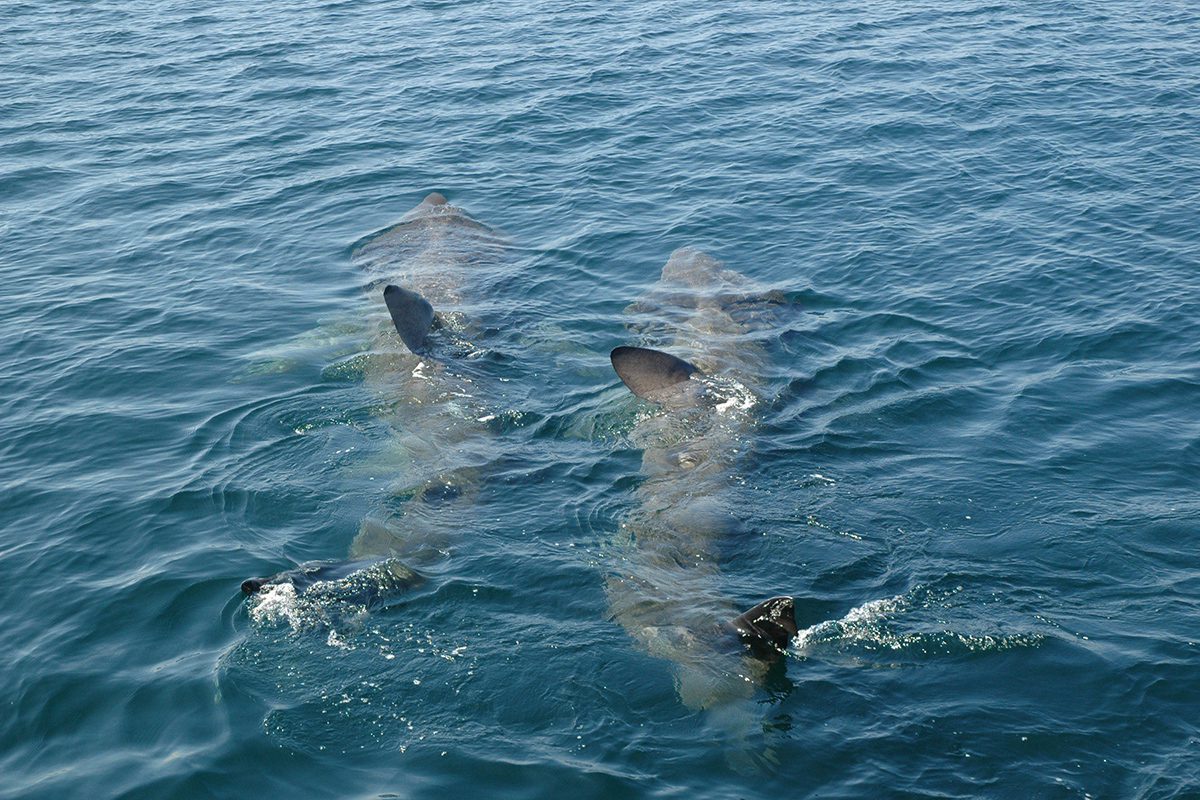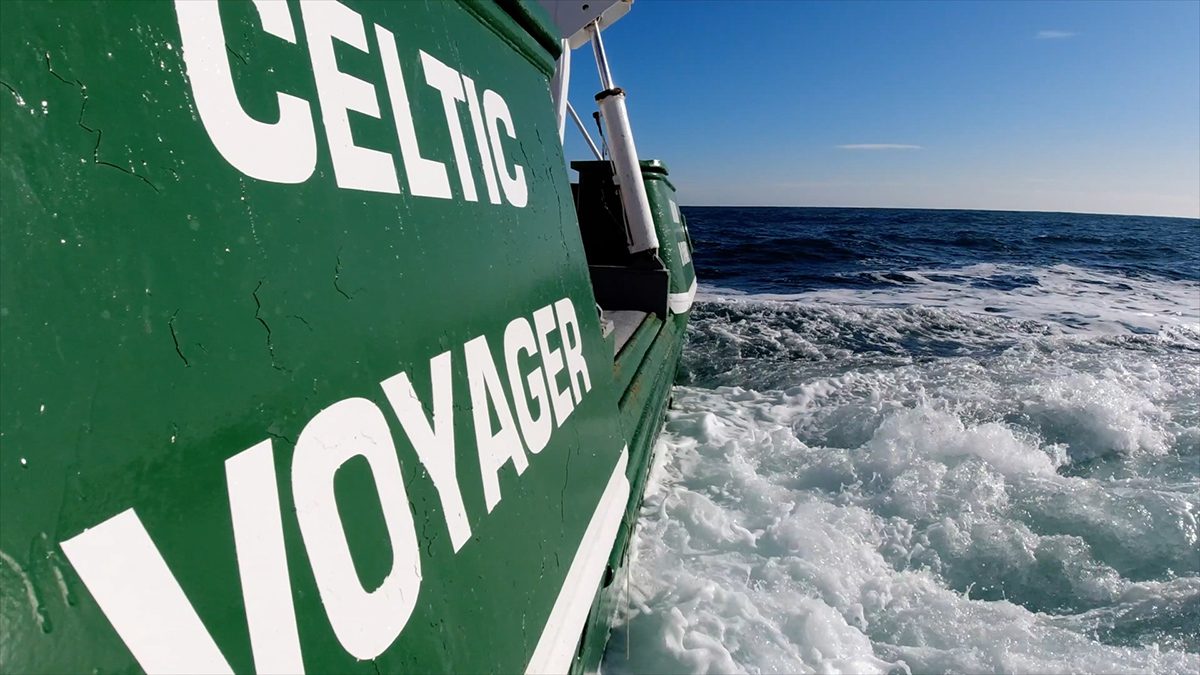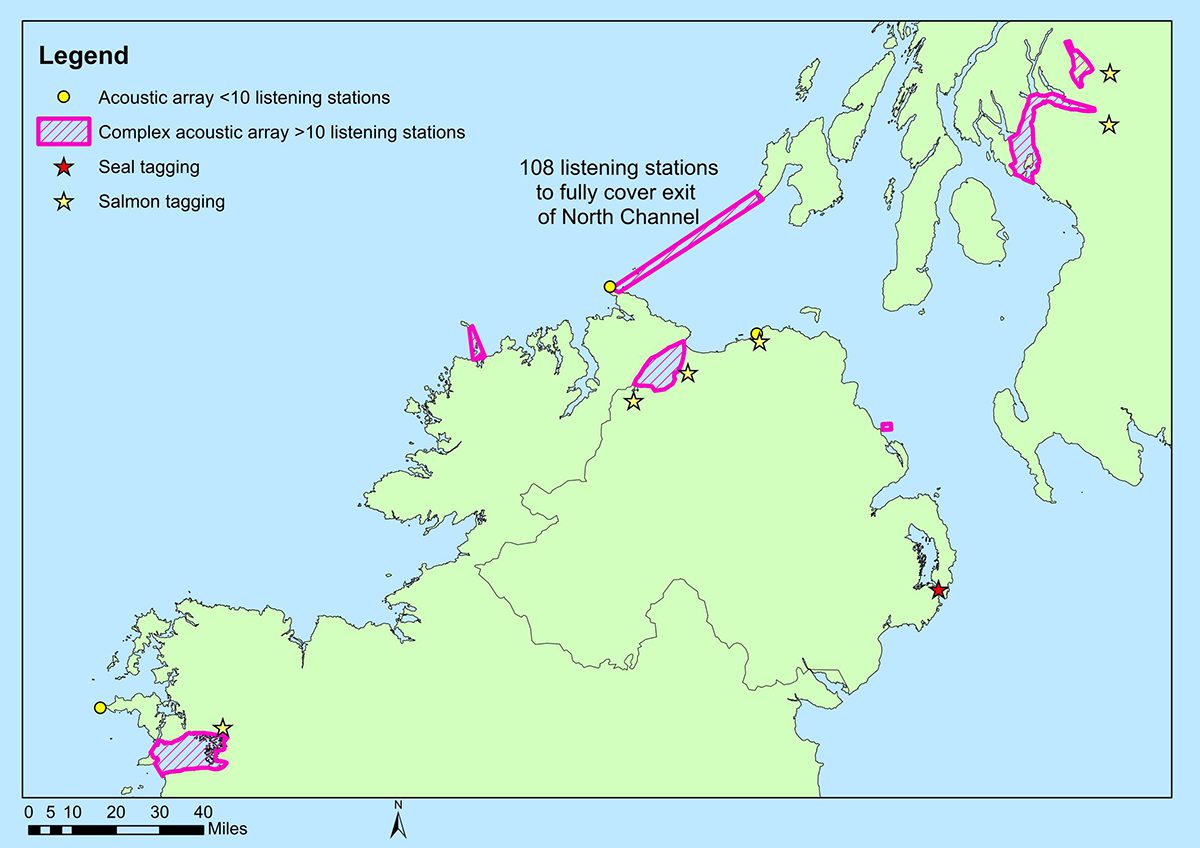
A unique marine research project led by sustainability group Loughs Agency is underway to study the seas around Ireland and Western Scotland with the deployment of ‘Europe’s largest fish counter’.
The SeaMonitor project – which is supported by eight leading marine research institutions located in Northern Ireland, the Republic of Ireland, Scotland, the US and Canada – will use innovative marine species tracking technology to better understand and protect vulnerable marine life in our oceans.
Listening stations from Malin Head – Ireland’s most northerly point – to the island of Islay in Scotland will record transmissions from a variety of mobile marine species tagged by the project’s scientists.
The data collected using acoustic telemetry will be used to support the conservation of vulnerable species such as salmon, basking sharks, skate, dolphins, whales and seals.

Sharon McMahon, Loughs Agency CEO, said the deployment of the fish counter marked a major achievement for the SeaMonitor project. She said her group was proud to be helping to deliver “such amazing marine research infrastructure that will ultimately help protect some of our most important species.”
Funding for the €4.6m project has been provided by the EU’s INTERREG VA Programme (Environment Theme), which is managed by the Special EU Programmes Body (SEUPB). Match-funding comes from the Department for Agriculture, Environment and Rural Affairs in Northern Ireland and the Department of Housing, Planning and Local Government in the Republic of Ireland.

Gina McIntyre, CEO of the Special EU Programmes Body, welcomed the announcement and the efforts of partners in Northern Ireland, Ireland and Scotland working together collectively.
“This is a much-needed step forward for the conservation of a number of vulnerable species within our shared oceans. It only serves to highlight the benefits that are created through strong, mutually beneficial cross-border partnerships in the management of marine protected areas and species. Well done to all involved for advancing our understanding of our seas,” she added.
Dr. Fred Whoriskey, Executive Director of the Ocean Tracking Network explained: “This project is important in so many ways. It will unite and empower scientists from Europe and abroad to tackle pressing management issues, provide global networking for scientists to efficiently use resources, and engage the public in project outcomes. We are pleased to provide technical support and counsel, as well as tracking infrastructure to SeaMonitor which is contributing to the conservation of Europe’s valued marine animals.”
Dr Ciaran Kelly, Director of Fisheries Ecosystems and Advisory Services at the Marine Institute added: “We are delighted to collaborate with partners on the SeaMonitor project and provide technical support and ship-time on the Marine Institute’s research vessel, the RV Celtic Voyager. Tracking the migration of species and identifying environmental signals influencing their movement is essential to effectively protect and manage our marine ecosystems.”







